
Most global jihadis are not illiterates raised in poor slums, but from well-off families and with advanced education degrees.
“Most of the danger comes from us,” said Majid Nawaz, founder of Khudi, at a seminar titled ‘Muslims and the Modern World The State of the Muslim Ummah’. Young people being educated at “elite” schools and colleges were joining the extremists, he said.
“Terrorists are not just from slums – statistically, a disproportionate number of global jihadis come from a higher education background,” said Nawaz, who was formerly a member of the Hizbut Tahrir (HT). He quit the group to found Khudi, which works to counter extremism.
Nawaz said there was a difference between the political and the religious definitions of the word ‘ummah’. He said there was no contradiction between being a Pakistani and being a Muslim. Pakistanis could carry multiple identities, he said, owing to religious or social affiliations. “People themselves organically determine who they are, as a group or a nation,” he said.
He said it was “politically naive” to demand the implementation of the Sharia, the main aim of the HT. He said that when imposing Sharia, a society chooses a particular interpretation of Islam and closes the door on ijtehad. “Islam must be kept free of political interference,” he said.
He called for a comprehensive national strategy to counter extremism. All political and religious factions should agree on “basic social principles”, he said.
He said that the National Counter Terrorism Authority needed to be activated. He said that the government had not even started the “de-radicalisation of society”.
Science and religion
“Science requires free thinking, a mind that questions,” said Pervez Hoodbhoy in his talk on ‘The intellectual decline of the Muslims’. He said that Muslims had moved away from progressive scientific approaches over the last 700-800 years.
Hoodbhoy, a physicist, said that religious and scientific studies should be kept separate. To a question, he said that scientific and technical education would be more effective in advancing the interests of the socially and economically deprived than religious education. “People need to earn bread before being enlightened,” he said.
Hoodbhoy said that discrimination on the basis of religion was unacceptable in any democratic society. He said that while Muslims living abroad were quick to raise their voices against the social victimisation and injustices they faced, they stayed silent when minorities in Muslim societies faced similar situations. “First it was the Ahmedi and now it is the Shia community facing discrimination and violence, but are we as a society bothered enough to raise a voice?”
Moiz Amjad, former editor of monthly Al-Ishraq and a protégé of Islamic scholar Javed Ghamdi, argued that divine revelations were just reminders addressing the intellect and the conscience of every individual.
He said that only when “understanding” and “conscience” were kept alive did a person become capable of understanding divine revelations. “Religion is the most dangerous sword in the hands of a person who has no conscience,” he said.
He said definitive interpretations of Quranic verses limited room for deliberation and tolerance. He said that the rules for the rise and fall of nations were “developmental and not religious in nature”. “Being born a Muslim does not make one naturally destined for progress in this world,” he said.
Amjad said it was a misconception that Islam was a code of life. He said Islam taught moral values which defined the course of life, but it did not comment on specific worldly affairs. “Islam came to us for a specific reason to remind us that we will be accountable before God after our death,” he said.
The seminar had to be shifted at the last minute from the basement to another hall in the Ambassador Hotel because it received a bigger audience than expected. Some 65 people attended the event.
Published in The Express Tribune, May 16th, 2012.
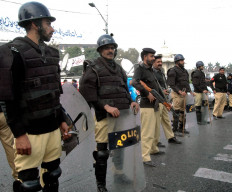




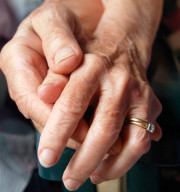




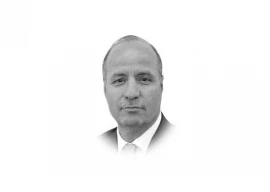

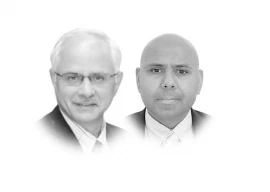




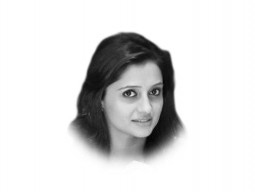
COMMENTS
Comments are moderated and generally will be posted if they are on-topic and not abusive.
For more information, please see our Comments FAQ